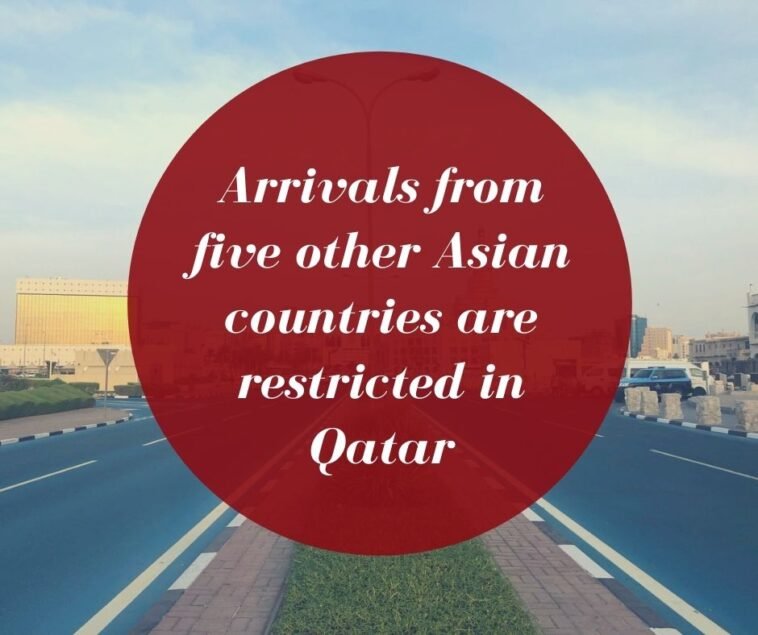Travelers from six Asian nations, including India, were subject to a mandatory quarantine at hotels in Qatar on Sunday.
The health ministry said that beginning August 2, arrivals from Bangladesh, India, Nepal, Pakistan, the Philippines, and Sri Lanka who have been vaccinated or recovered from COVID-19 in Qatar will be placed in a two-day hotel quarantine. The quarantine period will end when a passenger’s PCR test results are negative following Qatar’s COVID-19 vaccination or recovery.
The Ministry of Health says that non-vaccinated visitors coming from these countries will have to spend 10 days in hotel quarantine. A medical team at the airport or entry point to the country will determine whether or not to screen travellers who show signs of infection. Almost all of Qatar’s 2.7 million residents, including 2.3 million ex-pats, are being vaccinated.
Pfizer BioNTech, Moderna, AstraZeneca, Johnson & Johnson, and Sinopharm vaccines are approved for use in Qatar. In an announcement dated July 8, the Qatari interior ministry announced the resumption of visa issuance for tourists. The number of COVID-19 cases in Qatar went up to 95 on Sunday, but zero patients died. During the vaccination campaign, 3,780.468 vaccine doses were administered.
Vaccinated expatriates arrive in Kuwait
Kuwaiti airport on Sunday began to accept expatriates vaccinated with two doses of the approved vaccine and with a valid residence permit, after being closed for seven months.
The government still prohibits direct travel between India, Sri Lanka, Bangladesh, Pakistan, and Nepal, even though vaccine-eligible visitors are allowed in the country. Before arrival in Kuwait, passengers from all banned countries need to spend 14 days in a non-banned country.
According to Abdullah Al-Bakhsh, head of projects and planning at Kuwait’s Directorate General of Civil Aviation, the first flights carrying ex-pats arrived in Kuwait on Sunday midnight. He said Kuwait has received eight flights carrying 739 passengers in nine hours following the lifting of the entry ban. To prevent the spread of COVID-19, Kuwait stopped allowing non-Kuwaiti citizens into the country in February.



